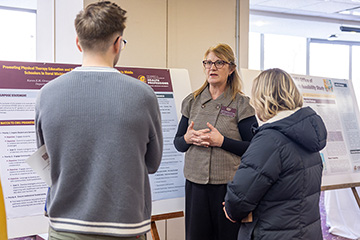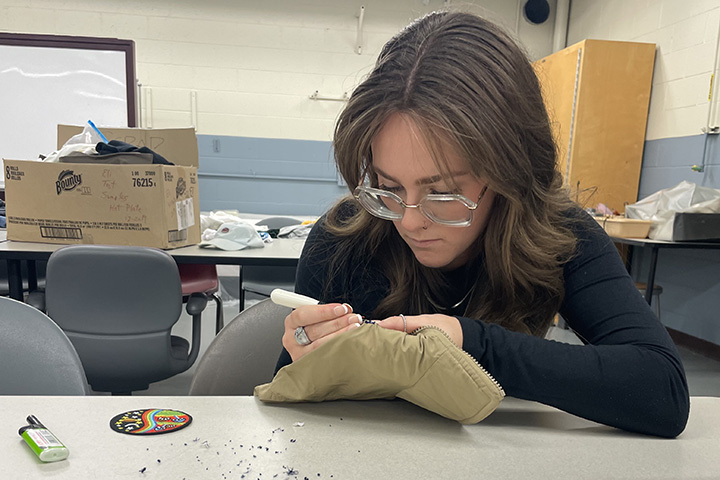Math multiplies MRI effectiveness
Research aims to shorten MRI scan times without compromising accuracy
In the medical field, precise analyses of brain imaging are vital to positive patient outcomes. Hiruni Pallage’s recent dissertation in Mathematics compared three methods of analysis to improve the accuracy of interpreting brain images obtained by the non-invasive method called Magnetic Resonance Imaging, or MRI.
Pallage worked on this project in close collaboration with her advisor, Yeonhyang Kim Ph.D., a professor in the CMU Mathematics Department. Pallage hopes her results will one day lead to reduced imaging times for patients, without decreased precision of the neural map of the brain. The details of brain images are necessary to effectively treat neurological disorders like depression and autism; however, some patients become claustrophobic during long MRI scans.
This project was challenging as a mathematics student because Pallage had to first spend time understanding the fundamentals of how MRI scans generate images of neurons in the brain. Her investment paid off when her advanced mathematical analyses resulted in an improved signal compared to existing methods of analysis.
Pallage is excited to have completed her dissertation and start a new position as an Assistant Professor of Mathematics at Centre College. She looks forward to her results being used as a foundation for future studies, and one day being applied in a clinical setting to improve patient experiences during MRI scans and improve treatments for serious neurological disorders.




